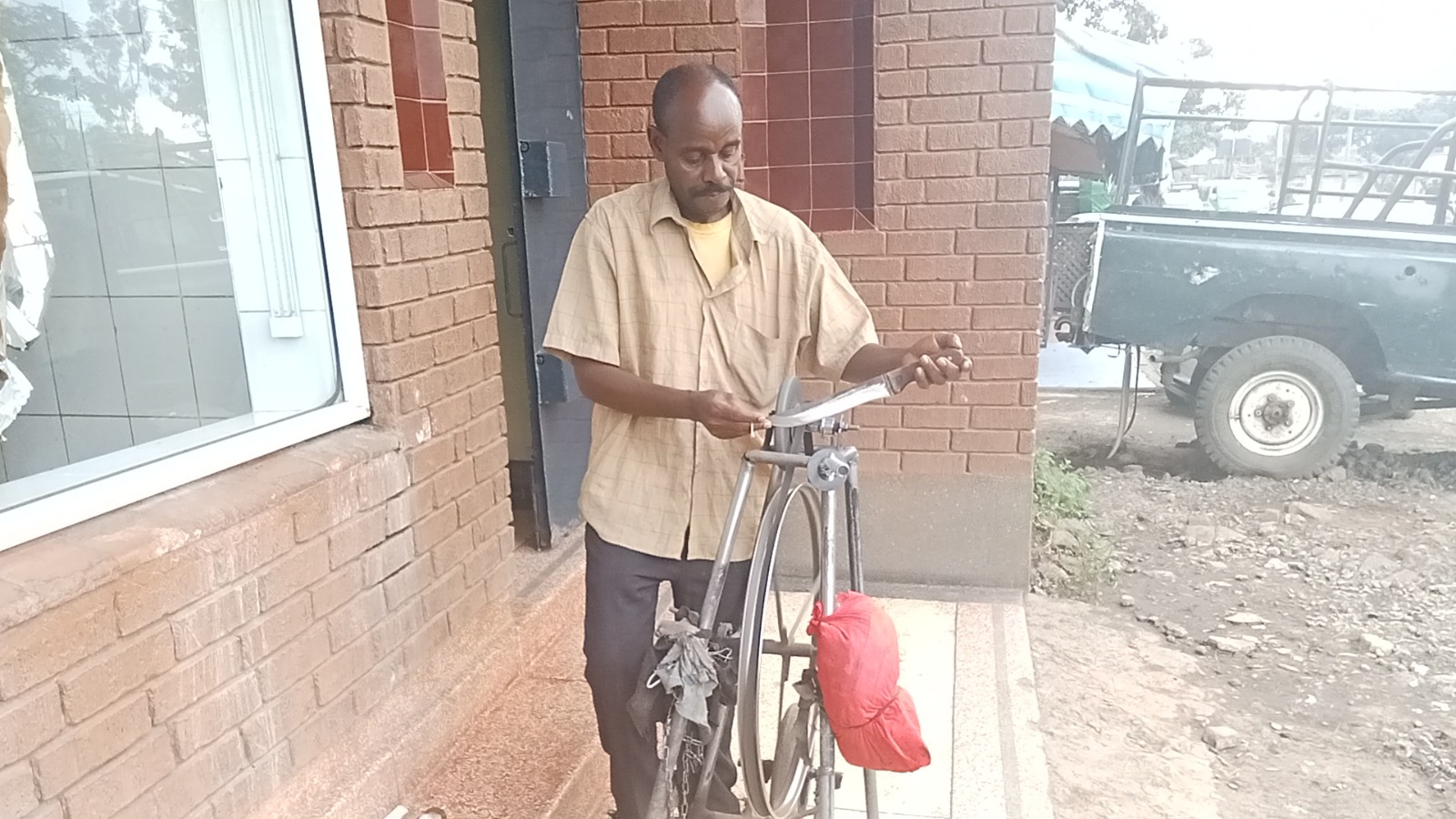Mwangi Mbuche: Cutler who keeps knives in Nairobi households, butcheries sharp

By Barack Oduor |
Unlike most of his counterparts who sometimes prefer being stationed in one place, Mbuche moves around neighbourhoods looking for customers.
Mwangi Mbuche peddles his stationary bicycle while his hands are holding a knife against a grinder hoisted in his sharpening machine. He is attending to a butcher in Nairobi’s Pangani estate after which he will move to either the neighbourhoods of Eastleigh or Majengo, depending on what the day brings forth.
Mbuche, who is in his late 40s, is enjoying a job he began in his 20s — sharpening knives for households and butcheries in Nairobi. So famous are his endeavours that he is known by residents who have encountered him for several years.
Keep reading
While speaking to The Eastleigh Voice, Mwangi said knife-sharpening can be a very successful business.
"Your business will thrive if you work hard and provide excellent customer service. You can maximise profits and keep most of your income because the costs are modest," says Mbuche.
He charges between Sh30 and Sh70 per knife depending on size.
Unlike most of his counterparts who sometimes prefer being stationed in one place, Mbuche moves around neighbourhoods looking for customers.
He has developed partnerships with local chefs, restaurants, and other culinary enterprises and offers them specialised services like on-site sharpening, knife rentals, and maintenance plans.
"If you're a chef or a person who loves cooking, you know how frustrating it can be when your blade becomes dull. You can use knives for various tasks, regardless of whether you are an avid cook or camper. Because they are expensive, more owners are choosing to sharpen their blades rather than replace them when they become dull," Mbuche says.
He explains that since knives are relatively expensive, people want to keep them in good condition. Again, some people like to cook at home more often, so they need their knives sharpened regularly, leading to an impressive demand for his services.
"A dull knife helps no one. People are cooking more than ever, so they need to keep their knives and other kitchen tools in tip-top shape."
He narrates that there are different types of knives, each with a specific blade shape.
Mbuche reveals that each blade shape requires a different sharpening angle. Some are more curved than others and need a steeper angle to sharpen correctly. The sharpness of the blade will also depend on how many times it has been sharpened before.
For those who would like to start a knife sharpening business, Mbuche advises them obtain licenses and permits.
"When you start a knife sharpening business, you'll need licenses and permits from the local authorities. These include health licenses and occupational safety and health permits."
What has been Mwangi's secret of staying in the business for long? His focus on good customer service. "Customer service is about more than just having business knowledge, answering the phone, or responding to emails in a timely fashion. It's about ensuring that when your customers call with questions, concerns, or complaints, they feel heard and understood—and get what they need for their experience with your brand to be successful."
To begin the business, Mwangi notes that all a person needs is basic knowledge about how to sharpen knives, some sharpening tools, and some customers. He earns between Sh5,000 to Sh1000 in a day, depending on the number of customers he comes across.
Reader comments
Follow Us and Stay Connected!
We'd love for you to join our community and stay updated with our latest stories and updates. Follow us on our social media channels and be part of the conversation!
Let's stay connected and keep the dialogue going!





